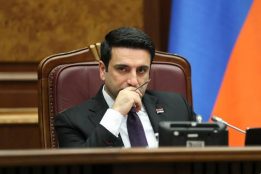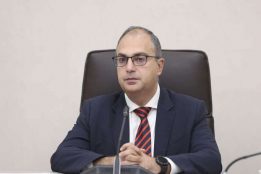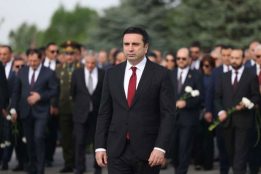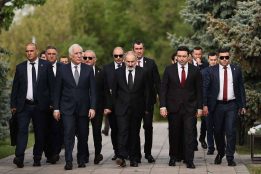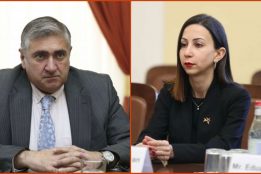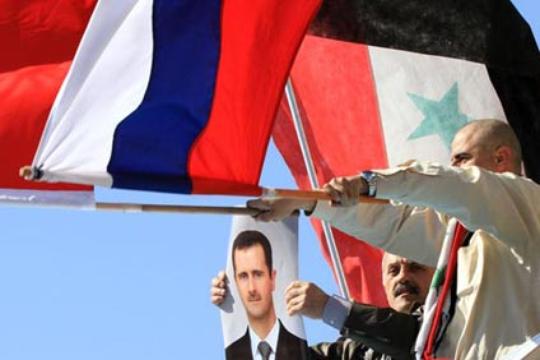
Marc Pierini from Carnegie touched upon Syrian developments in the context of regional military developments. Find the full article below.
The latest developments in Syria and Lebanon clearly illustrate the four main elements of the Syrian crisis: a) unrestrained violence used by the Damascus regime in order to survive; b) the Syrian conflict spilling over to Lebanon; c) the Syrian revolution becoming the occasion for several players to seek a new balance of power in the region and beyond; d) clear red lines being drawn.
The first issue is the fallout of the Libyan crisis on Chinese and Russian diplomacy. Quite obviously, the way in which U.N. Security Council Resolution 1973 was interpreted with regard to Libya by Western members of the U.N. and by China and Russia has resulted in an unprecedented rift (three consecutive vetoes). While China primarily underlines the principle of non-intervention on which its foreign policy is based, Russia insists on the fact that a new order has emerged in the region after the Arab Spring and that policies cannot be “dictated” by the West anymore. More than specific vested interests in Syria, these are the reasons for the U.N. deadlock, in turn “legitimizing” oppression by the Damascus regime.
The second issue is that the Libyan crisis also took its toll on Western countries. The U.S. has shown an aversion to risk-taking both in Libya and in Syria, offering no ground troops. This is not election-related, but more of a long-term trend. However, it is likely that the red line issued by President Obama about the use of chemical weapons will remain whoever the next President is in January. Since 2007, France and the U.K. have shown clear strains in their military capabilities due to long-standing budgetary constraints and do not possess the capacities needed to sustain simultaneous emergencies anymore. Turkey, definitely perceived in the Arab world as part of the West, has shown restraint when it comes to combat interventions in a NATO context (Afghanistan, Libya) and finds similar constraints in the case of Syria, although it has a much higher stake this time.
The third issue is that the Lisbon Treaty reorganized EU diplomacy under the influence of the “big three” (France, Germany, U.K.). Today, in a situation like Syria where a combination of instruments – sanctions, humanitarian assistance, technical assistance, diplomatic work – is required, the EU system as a whole is probably less reactive and imaginative than before. The initiative is not in Brussels anymore. But at least a clear red line was issued by the French President last Sunday to Syria, when it comes to the integrity of Lebanon.
The fourth issue is that the stakes of Iran in the Syrian crisis are extremely high. With the fall of the Damascus regime, Tehran would witness a breakdown in the “Shia Belt” (Iran, Iraq, Syria, Hezbollah) and would experience new limitations in its weapons delivery to Hezbollah. This explains Iran’s strong support to the Damascus regime. However, a red line has recently been issued to Damascus: do not use chemical weapons. Moreover, the Syrian crisis is seen by Tehran as a major “opportunity” to position itself as a major regional player. The drone intrusion over southern Israel is a clear illustration of this. What’s more, playing a key role in the Syrian revolution is a way for Tehran to introduce a counter-balancing argument in the “P 5+1” discussions on its nuclear program. Other red lines lie ahead.
Meanwhile, violence in Syria continues unabated. The state has all but collapsed and the economic, social and psychological damage is immense. The Damascus regime does not seem to listen to anyone and would probably only reluctantly offer itself for dialogue with the opposition if Russia and China pressed hard.
As tempting as the “strategy of chaos” might appear in the silence of Damascus’ “People’s Palace,” such a scenario is unsustainable. It would inevitably lead to a lasting, protracted war of attrition where a still-powerful army would struggle to score points, but would gradually lose its edge through defections, disruptions in supplies, and low morale. Meanwhile, the Islamist component of the insurgency would become stronger by the day. Under such circumstance, whether the country remains a single entity or is partitioned would be almost a secondary question.
Many questions remain open before negotiations can take place:
• The non-violent elements of the old regime and elements of the civilian opposition will have to come to the table. When? What for? This is an open question.
• When will Western countries accept that negotiation is a must?
• Will Russia and China come to understand that every day that passes brings about the likelihood of an Islamist regime in Damascus, which is clearly not in their interest?
While utterly unwanted as a major player by many Sunni regimes in the region, what will Iran do in order to be at the centre of things? Will it see that confrontation with the West is not the way forward?
One common factor remains: all stand to lose from the continued brutality of the Damascus regime. This alone should be a reason to act together towards a peaceful resolution of the Syrian crisis.

















